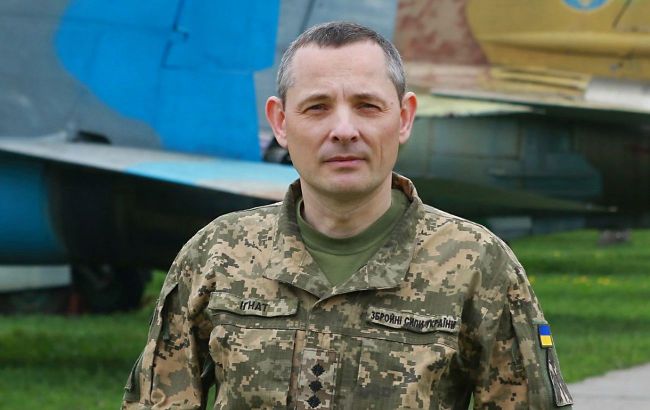Fewer attacks? Air Force spokesperson explained impact of destroying Russian A-50
 Photo: spokesman of the Air Force of the Armed Forces of Ukraine Yurii Ihnat (armyinform com ua)
Photo: spokesman of the Air Force of the Armed Forces of Ukraine Yurii Ihnat (armyinform com ua)
The destruction of the Russian long-range radar detection aircraft A-50 will not affect strikes on Ukraine. However, the loss of such an aircraft diminishes the enemy's capabilities, according to the Air Force spokesperson Yurii Ihnat.
The spokesperson refuted the notion that Russians would launch fewer rockets at Ukraine after losing the A-50 aircraft and switch to Shaheds attacks.
"The capabilities of the Russian aviation diminish as specialized equipment is destroyed, air fleets are damaged, and entire crews are lost, so gradually weakening the enemy with the means we have," he said.
Ihnat added that the occupiers still have long-range radar detection aircraft, so attacks are unavoidable.
"Of course, they will take into account what happened. They won't fly the same A-50 again. You see, the more we destroy, the further-reaching the impact on that aircraft. This diminishes their capabilities in conducting radar reconnaissance of Ukrainian territory, detecting air targets, as well as detecting our radar systems," explained Ihnat.
Destruction of the Russian aircraft
In the evening of February 23, sources from RBC-Ukraine in the Armed Forces reported that a Russian A-50 aircraft was shot down over the Sea of Azov. This is the second A-50 destroyed by the Armed Forces since the beginning of the war.
The General Staff clarified that the A-50U is a new upgraded version of the aircraft. The cost of the destroyed aircraft is $350 million.
President Volodymyr Zelenskyy hinted that the Ukrainian weapons shot down the Russian A-50.
The Russians used such an airborne command post for long-range radar detection, management, and guidance for missile strikes on Ukraine from strategic aviation.
More about the uniqueness of the A-50 can be found in this material.

